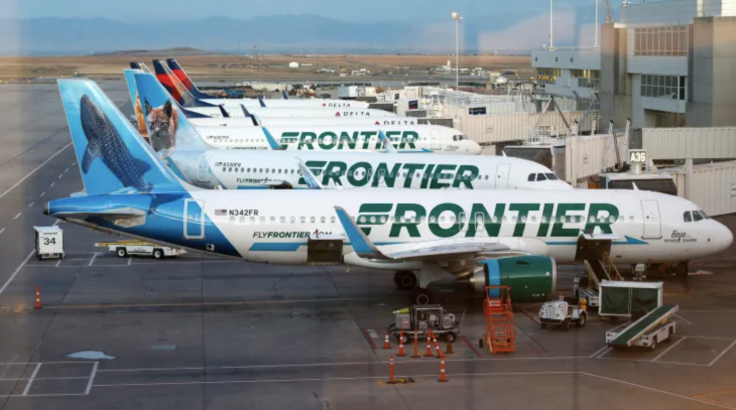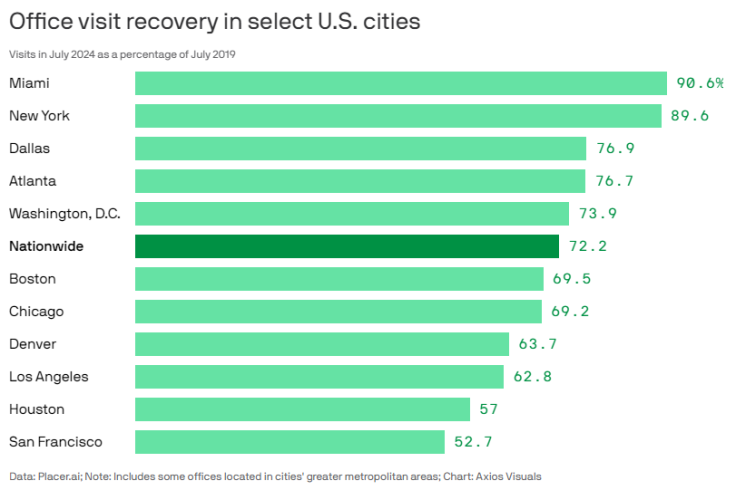People In Miami Are More Likely To Return To The Office Than Those On The West Coast, A New Analysis Finds
People living in Miami and New York have returned to work at offices at higher rates than people living in San Francisco, for instance

In 2020, the COVID-19 pandemic brought to light the chance to millions of people to work remotely from their homes. Fast forward to this day, the probability of returning to the office might be based on where you live.
According to new data from Placer.ai's Nationwide Office Building Index, office foot traffic hit its highest point since July 2019 last month. Office visits rose to 72.2% nationwide but, according to the data, there is a wide disparity between cities when it comes to returning to the office.

In Miami and New York, office visits are over or close to 90% compared what they were in July 2019, while cities on the West Coast such as San Francisco and Los Angeles are seeing less traffic.

Among the selected cities in Placer.ai's index, San Francisco is the hub with the lowest office turnout as of July 2024. The California city is almost 20 percentage points below the national average despite seeing an increase of traffic compared to last year.
Year-over-year, foot traffic grew in all 11 cities highlighted in the report. The city of Miami led those select cities with 22.8% YoY visit growth, followed by San Francisco and Los Angeles (both at 20.2%). Author Lila Margalit said that this is "further evidence that the office recovery remains very much underway," despite a lower turnout in west coast cities.
According to Goldman Sachs economists, about 20% to 25% of workers in the U.S. work from home at least part of the week. That is below a peak of 47% during the pandemic but well above the 3% average before the COVID-19 pandemic.
Last month, Miami and New York led the nation in visits to offices in both cities, reaching about 90% of what they were in July 2019. Miami, New York, Atlanta, Boston, Chicago, Denver, Los Angeles and San Francisco had their single busiest in-office month during July.
With office visits unlikely to reach pre-pandemic levels, executives are increasingly resigned to a world where employees do not come in daily.
Earlier this year, a survey conducted by The Conference Board revealed that just six out of 158 U.S. CEOs said they prioritized bringing workers back to the office full-time in 2024. About 27% of those surveyed cited "maintain hybrid work" as a priority while 65% of CFO's expected their company to offer a hybrid arrangement this year.
"The battle is over," said Diana Scott, human capital center leader at The Conference Board. "There are so many other issues CEOs are facing."
© Latin Times. All rights reserved. Do not reproduce without permission.




















